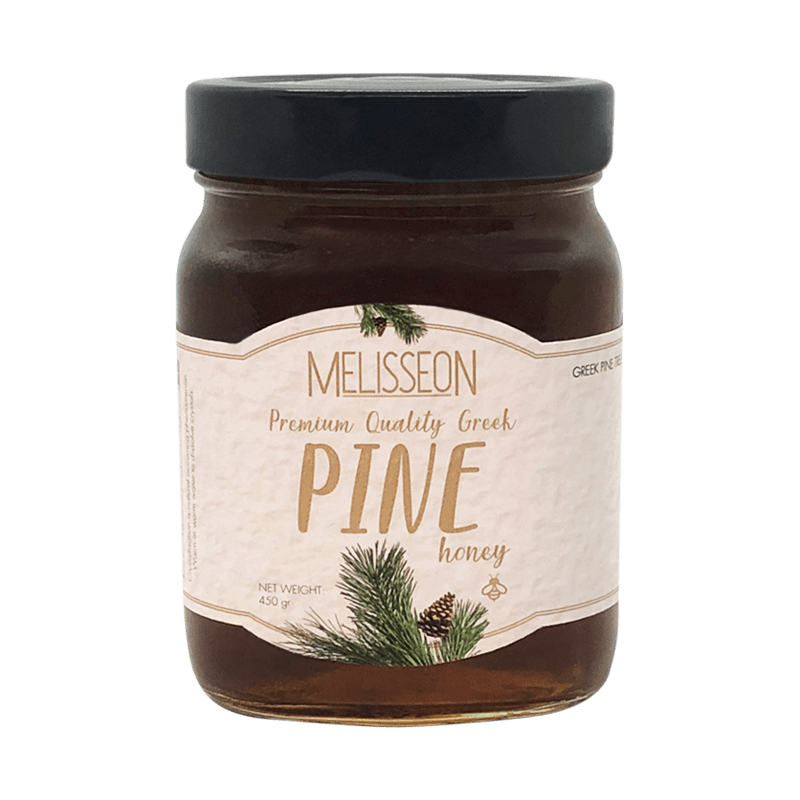Honey Varieties Pine honey

Pine honey comes from the honey secretions of the insect cotton (Marchalina hellenica) or pine worker. The honey is secreted from June to April but we do not take honey all this time. The tree produces honey for three weeks and then stops, “cuts” for another three and this is repeated for the entire period from June to April.
Also, in order for the bees to be able to collect the honey, the relative humidity must be above 65% – 67% and the temperature from 20οC – 21οC.
Pine honey has a special and characteristic color which depends on its production period. The color of pine honey is in shades from dark yellow to light brown. Pine honey produced in spring has a lighter color and greater clarity than that produced in autumn. Like honey, it is not very sweet, due to its low glucose content, while its aroma is spicy and unusual, reminiscent of iodine. Pine honey crystallizes slowly, due to its low glucose content, and pure pine honey can remain liquid for a long time, more than a year and a half.
Melisseon
Nutritional value
The nutritional value of pine honey is very high thanks to the large number of minerals and trace elements it contains. Magnesium, calcium, zinc, iron and copper are some of the minerals and trace elements found in its composition.
It also contains carbohydrates, proteins, amino acids, vitamins and enzymes which makes it an ideal food for athletes, children and people with intense physical and mental activity.
Its low content of sugars and glucose allows its consumption by all age groups. Finally, it has a very low caloric value since 15 grams correspond to 46 calories.
Scientific research has highlighted pine honey as one of the most important types of honey in terms of its properties.
Pine honey has been shown to have anti-inflammatory and antiseptic effects and also helps treat coughs, sore throats and gout.
The low pH combined with the high hydrogen peroxide content acts preventively to treat a wide range of microorganisms.
In addition, it has tonic properties, increases heart rate and reduces the problems associated with ulcers and has antimicrobial properties.
